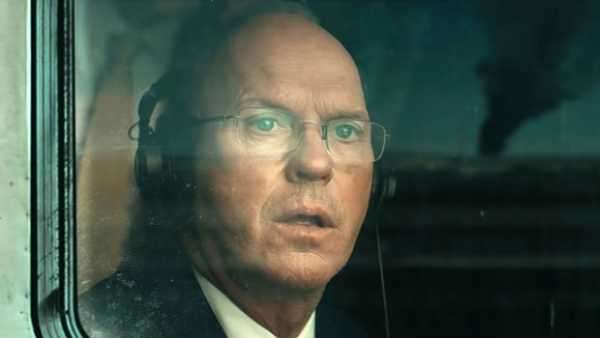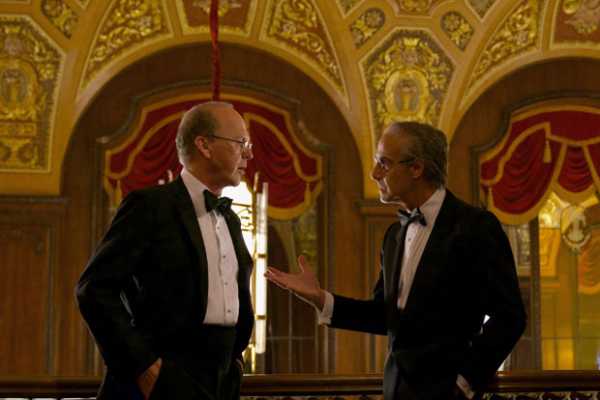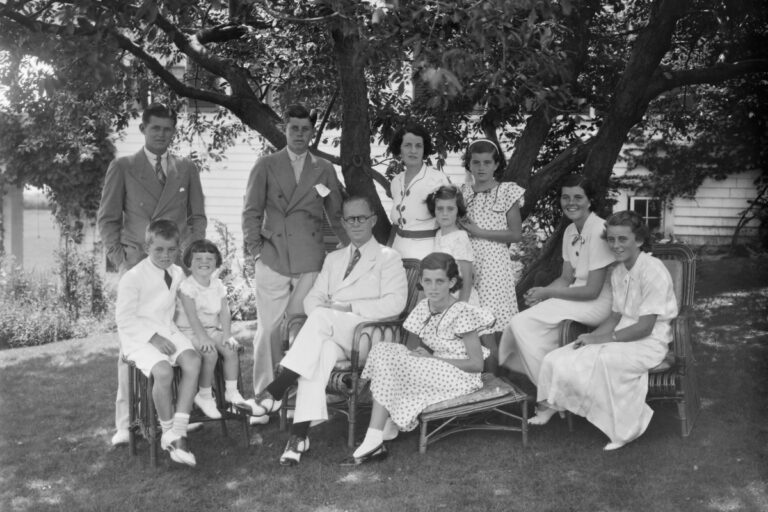
‘Worth’ explores the aftermath of 9/11, specifically the September 11th Victim Compensation Fund. HL spoke EXCLUSIVELY with Max Borenstein about being ‘compelled’ to write this film.
After the horrific events of 9/11, Congress appoints attorney Kenneth Feinberg to lead the September 11th Victim Compensation Fund, and that’s where Worth begins. Kenneth, played by Oscar nominee Michael Keaton, is tasked with allocating financial resources to victims of that harrowing day. Through this journey, Kenneth is faced with a difficult question: what is a life worth? Kenneth comes across heartbroken families and mourners, including Stanley Tucci’s Charles Wolf, and begins to understand the true human costs of the tragedy.
HollywoodLife spoke EXCLUSIVELY with screenwriter Max Borenstein about the road to make Worth. He revealed that some of the heartbreaking testimonials in the film are actual people who lost loved ones in the attacks. Max also believes Worth is “universally resonant” now more than ever as a showcase how the government can do “real good by involving themselves positively, empathetically, in the lives of citizens.” Read our full Q&A below.

MIchael Keaton and Stanley Tucci in ‘Worth.’ (Everett Collection/Netflix)
Why were you inspired to write Worth?
Max Borenstein: It was when I first heard this story. I was 20 when 9/11 happened, in college, and as it was for everyone who is conscious in America and I think really a lot of people around the world, just life-changing in so many ways. I had no one, thankfully, that I personally knew who was lost in the attacks, but I had a lot of family in New York and I was on the east coast at the time, just an hour away. I had been there the week before. Obviously, you didn’t have to be, you could have been anywhere in the country or in the world, but it was such a formative moment and a tragedy. It’s one of those tragedies that happens that we all remember where we were and you remember the before and the after. I wouldn’t say that immediately I thought, oh, I’d love to write a movie about events having to do with that, but when I learned the story of the fund in the aftermath of 9/11 I was stunned that this had happened and kind of without my knowledge. I think I’d seen some articles about it, but I wasn’t really aware of the extent or the uniqueness of it. More importantly, it felt like a tremendous window when I read Ken’s memoir into a moment of grief and healing that happens after tragedy and after grief that felt like it wasn’t about the politics or the event itself, but rather about something more universal and humane. I was immediately compelled. This had to be a story that was told.
What were your conversations like with Ken Feinberg?
Max Borenstein: He’s an incredibly charismatic, fascinating guy and a real character who, in the film, Michael Keaton unbelievably does justice to. Ken himself is an incredible character to meet. He was fascinating from the moment I met him, but what kind of struck me right away was the sort of honesty and candor with which he’d be the first to admit the challenges and the difficulties of his administration of the fund and the way in which it changed him as a person, having to deal personally with these thousands of individuals who had just recently had loved ones torn away and had their lives torn asunder. He is a lawyer, but at that time, he was a very successful lawyer who had dealt largely with cases in which the victims of these large class-action lawsuits and either the wounds had healed or enough time had passed. It wasn’t nearly as raw. These were cases that often had taken 30 years, and he was dealing with a generation later with family members after the events. He thought he was prepared because he was sort of technically well-qualified for this job, but here he was dealing with individuals who were open wounds. Their lives have just been torn apart and within weeks he was meeting with these people and talking numbers, which he thought he was qualified to do, but instantly provoked their ire and an uproar. Despite his best intentions, he realized that in many ways he had to adjust course, both technically with the fund and the way it was administered, but in a bigger way with his own bedside manner and the way in which he dealt emotionally with other people, rather than pragmatically with other lawyers.
One of the most emotional aspects of the film was the testimonials from the families and victims. Were those stories based on real situations or from Ken’s memoir?
Max Borenstein: Yes, so Ken in his memoir, one of the most effective parts of that is that he had permission from a lot of family members to quote their testimonials and did so verbatim, always anonymized, but the stories themselves are so specific and heartbreaking and real. We got permission to reproduce those and dramatize a number of them, so most of the talking head interviews, testimonials in the film, are verbatim quotes. Others are very slightly altered to be condensed, and some are more compositive in terms of taking some aspects of the true stories and creating some more simply digestible dialogue out of that. Actually, a few of them are actual people who lost their loved ones and wanted to come and sit in front of a camera and do that for us.
So they weren’t all just actors?
Max Borenstein: Yeah. I believe two are in the film still who were relatives of victims and were telling their own stories.
Did you get to sit down and talk with them even before filming those moments?
Max Borenstein: Yeah, we talked with all of them and found out what they were comfortable talking about. Sarah, the director, really just sort of had the conversation with them and they filmed.

Amy Ryan and Michael Keaton in ‘Worth.’ (Everett Collection/Netflix)
When this movie was filmed in 2019, you probably didn’t think it would be coming out around the 20th anniversary. How does it feel knowing that the film is, in fact, being released around the anniversary?
Max Borenstein: I’m thrilled, actually, because I think at the time that we initially wrote it and were hoping to make the film, I think the timing wasn’t right. It was still so raw and so close that. We got close to making it but for various reasons, it didn’t happen. I actually think it really is for the best. In a lot of ways, the story that it tells has become more resonant in a more universal way by being a little farther from the actual event. I think being about story in which a government agency and people working for the government are able to do real good by involving themselves positively, empathetically, in the lives of citizens… I think that’s something that we need to see more of right now. Certainly, I think, with the pandemic we have an example of a moment where we need government in a positive way, not in a divisive way. It feels in a way more universally resonant and, at the same time, I’m glad that the film can come out on an anniversary or around an anniversary, where there will be that raised interest in reminding ourselves what happened 20 years ago. I think it’s an honor and I think serendipitous timing that the film can come out now.
What was the process of getting Michael Keaton on board?
Max Borenstein: Michael was our first choice. I spoke to him first years ago, years before we made the film, and he was really intrigued and liked the script and was intrigued by the character. But he was also trepidatious, I think. He wanted to tell the story, but it’s such a challenging one. He was flirting with it, I should say, for quite a while and we had a conversation years ago. And then a few years later, as we kind of got closer to making it, he finally felt that it was right for him to take on the role. Once he did, things really took off in terms of being able to assemble the rest of our team. I wrote it for the first time a long time ago in 2007-08, and it was something that I, over the years, just always wanted to try to push forward however I could. That meeting with Michael was one of those efforts. It felt at the time like, well, that didn’t work out, but it’s nice that he was interested, and then persistence, both in the sense of continuing to try and the way in which stories that stick with you persist I think won the day for both of us. We certainly were eager to have him when he was finally ready.
What do you hope viewers take away from this film?
Max Borenstein: I think it’s a story that could be dry or political or bureaucratic, but it’s really the story of a citizen wanting to help his fellow citizens to recover from a tragedy that there is no solving, there’s no fixing, but that through empathy and caring and humanity, there’s a way in which even the government and a law that was not intended initially to help people but rather to save the airline industry, could actually be put to the service of citizens in a way. Again, there is no fixing the problem, but there is healing and there’s moving on and there’s a helping hand. I think it’s an incredibly inspiring story from a human level and from the standpoint of our government. Like, look, the government can do good when there are good people involved.
Sourse: hollywoodlife.com







